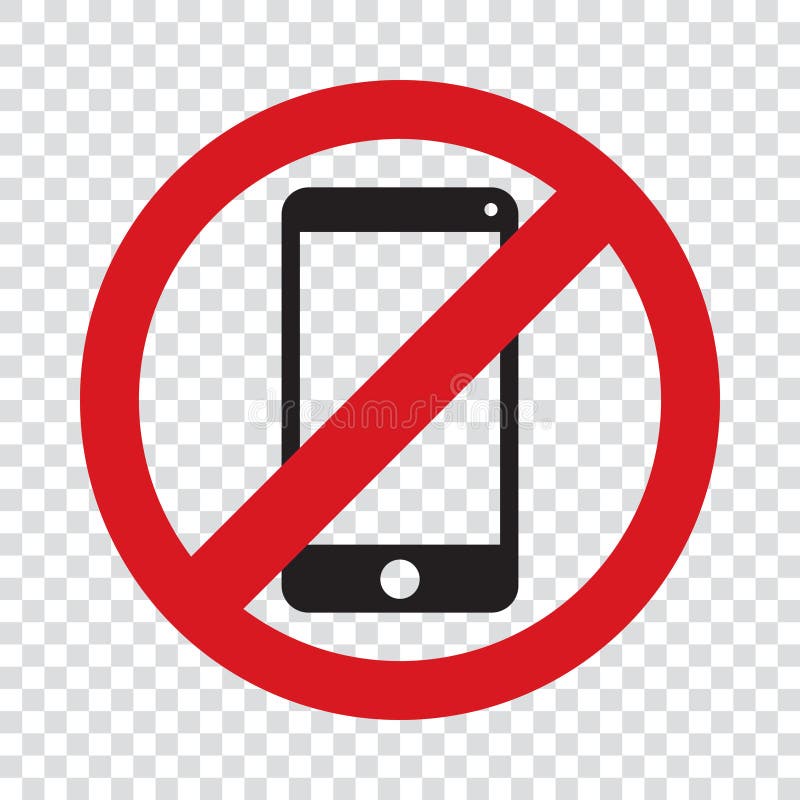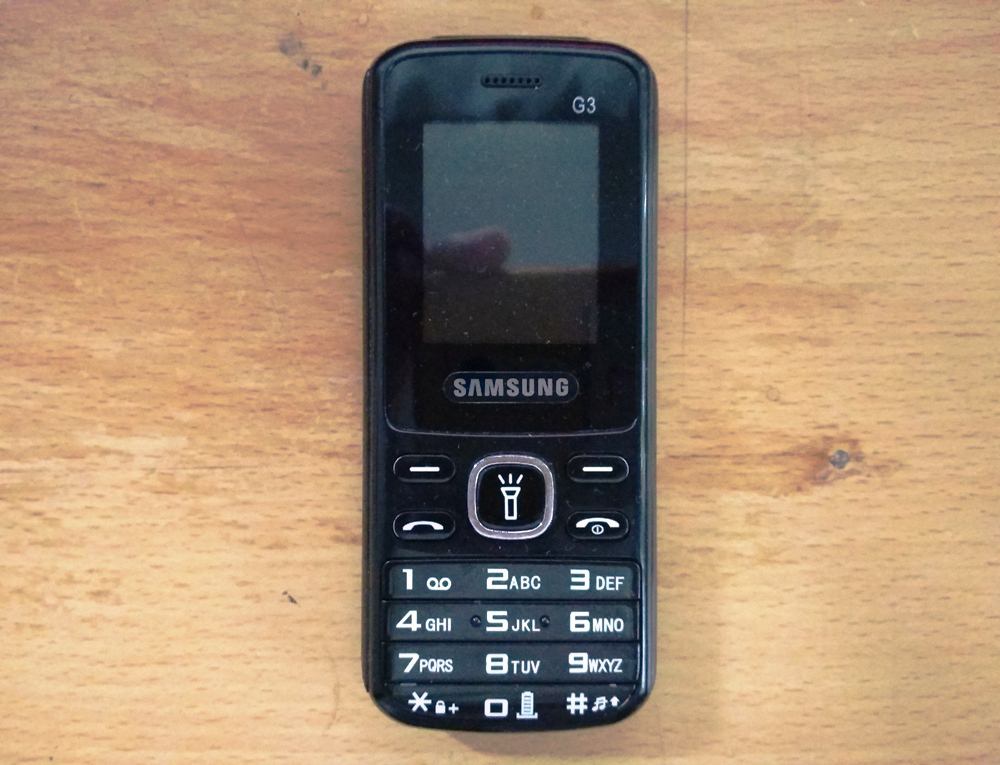By staying off the always-on world of smartphones, I prevent decision fatigue and news overload, maintaining a healthier balance in life. This choice also helps in avoiding distractions and online surveillance, contributing to a more focused and intentional lifestyle. Limiting accessibility to constant connectivity allows for deeper engagement with the present moment and enhances overall well-being.
The decision to forgo a smartphone is a conscious effort to prioritize mental health, productivity, and genuine human connections in an increasingly digital world.

Credit: www.alert-1.com
The Allure Of Simplicity
Choosing not to use a smartphone allows for increased creativity and deeper connections by reducing distractions and decision fatigue. By disconnecting, you have more time to focus on creating and engaging in meaningful activities, leading to a healthier mental state and improved cognitive skills.
Reclaiming Personal Space
One of the main reasons why I don’t use a smartphone is to reclaim my personal space. In today’s world, it’s easy to get lost in the constant notifications and distractions that come with owning a smartphone. By not owning one, I am able to control the level of access people have to me, and I can choose when and where I want to engage with technology. This allows me to have a better work-life balance and to focus on the things that matter most to me.
Reducing Decision Fatigue
Another benefit of not using a smartphone is that it reduces decision fatigue. When you have a smartphone, you are constantly bombarded with choices, from what app to use, to what to post on social media, to what to buy online. This can lead to decision fatigue, which can impact your ability to make good decisions later in the day. By not owning a smartphone, I am able to avoid the decision fatigue that comes with constantly being connected to technology. In conclusion, the allure of simplicity is what draws me to not using a smartphone. By simplifying my life and reducing the distractions that come with owning a smartphone, I am able to focus on what matters most to me. This has allowed me to be more productive, more creative, and more present in my daily life. While smartphones have their benefits, for me, the allure of simplicity is too great to ignore.

Credit: www.dreamstime.com
Digital Detoxification
Choosing not to use a smartphone allows me to avoid distractions, reduce decision fatigue, and maintain a healthier mental state. By disconnecting, I can focus on creativity, relationships, and personal growth without the constant digital overload.
Breaking The Always-on Habit
Constantly being connected to smartphones can disrupt sleep, impact memory, and reduce cognitive skills.
Cognitive Benefits Of Unplugging
Staying off the always-on world of smartphones has benefits. It reduces decision fatigue, news overload, and prunes social networks’ dead branches. Some people want to get away from the unavoidable distractions and surveillance of smartphones, while parents want to keep their children away from social media and avoid interruptions with their kids.
Mental Health Preservation
Excessive screen time before bed disrupts sleep patterns, impacting your mental wellness.
Protecting Cognitive Functions
Constant smartphone use can hinder memory, clarity of thought, and learning abilities.

Credit: www.craftdeology.com
Conscious Social Interaction
Conscious social interaction involves actively engaging with others in a mindful manner, prioritizing quality over quantity in relationships. By pruning social networks and fostering meaningful connections, individuals can experience deeper and more fulfilling interactions, free from the distractions of excessive smartphone use.
Pruning Social Networks
Pruning social networks involves curating and refining one’s circle of connections to ensure that they align with personal values and goals. By consciously evaluating and eliminating superficial or toxic relationships, individuals can cultivate a supportive and authentic social environment, enhancing their overall well-being.
Quality Over Quantity In Relationships
Quality over quantity in relationships emphasizes the importance of nurturing genuine connections built on trust, empathy, and mutual respect. By prioritizing meaningful interactions over superficial acquaintances, individuals can experience a sense of belonging and emotional fulfillment, contributing to their overall happiness and mental health.
Privacy And Surveillance Concerns
In today’s digital age, concerns about privacy and surveillance have become increasingly prevalent, especially with the widespread use of smartphones. Many individuals are opting to avoid using smartphones due to the potential risks associated with online tracking and the lack of control over personal data.
Avoiding Online Tracking
One of the primary reasons for not using a smartphone is to avoid being subjected to online tracking. By abstaining from using smartphones, individuals can minimize the amount of personal information that is collected and utilized by various online platforms and advertisers. This proactive approach helps in mitigating the potential risks associated with targeted advertising, data breaches, and unauthorized access to personal information.
Controlling Personal Data
Another key concern driving individuals away from smartphones is the lack of control over personal data. By refraining from using smartphones, individuals can take a proactive stance in safeguarding their personal information from being exploited by third parties. This includes avoiding the collection of location data, browsing history, and other sensitive information that may be susceptible to surveillance or unauthorized access.
Parental Control And Example
Choosing not to use a smartphone can have various benefits, especially for parents. By disconnecting from the constant distractions and staying off the always-on world of smartphones, it’s easier to focus on creativity and maintain a healthy work-life balance. This decision can also help in reducing decision fatigue and news overload, allowing for more meaningful connections with family and friends.
Shielding Children From Social Media
Shielding children from social media is crucial in the digital age. By limiting their exposure to online platforms, we protect their mental well-being and promote healthy development.
Setting A Tech-free Example
Setting a tech-free example for our children is essential. By prioritizing real-world interactions over screen time, we instill valuable habits that nurture meaningful relationships.
Productivity And Creativity Gains
There are numerous benefits to abstaining from smartphone use, particularly in terms of productivity and creativity. By eliminating the constant distractions and interruptions that smartphones bring, individuals can achieve significant gains in these areas.
More Time For Creative Pursuits
Without the constant pull of a smartphone, individuals have more time to dedicate to creative pursuits. Whether it’s writing, painting, or pursuing a hobby, the absence of a smartphone allows for greater focus and uninterrupted time to engage in these activities. This can lead to a more fulfilling and enriched creative life.
Focus Without Smartphone Interruptions
One of the key advantages of not using a smartphone is the ability to maintain focus without constant interruptions. The notifications, alerts, and temptations to check the phone can significantly disrupt workflow and concentration. By eliminating these distractions, individuals can immerse themselves fully in their tasks, resulting in improved productivity and higher quality output.
Addressing Technological Addiction
Choosing not to use a smartphone can lead to improved mental health by avoiding disruptions to sleep patterns. This decision can also enhance cognitive abilities and reduce distractions, allowing for more creativity and productive use of time. Additionally, limiting online access can help in reducing decision fatigue and maintaining focus.
Recognizing Addictive Patterns
In today’s world, we are constantly bombarded with technology and its addictive features. It’s easy to get caught up in the never-ending notifications, social media scrolling, and online shopping. However, recognizing these addictive patterns is the first step towards addressing technological addiction. Some common signs of addiction include feeling anxious without your phone, constantly checking your phone, and spending more time on your phone than with real-life interactions.
Strategies For Tech Moderation
Strategies for tech moderation can help break the cycle of addiction and ensure that technology is not controlling our lives. Some effective strategies include setting aside specific times to check your phone, turning off notifications for non-essential apps, and using apps that limit screen time. It’s also important to find alternative activities to do instead of using your phone, such as reading a book, going for a walk, or spending time with loved ones.
Benefits Of Disconnecting
Disconnecting from technology can have numerous benefits, including improved mental health, increased creativity, and better sleep. By reducing our dependence on technology, we have more time and opportunity to create, connect, and experience the world around us. It also allows us to be more present in our daily lives, and reduces the stress and anxiety that comes with constantly being connected. In conclusion, addressing technological addiction is crucial for our mental health and overall well-being. By recognizing addictive patterns, implementing strategies for tech moderation, and disconnecting from technology, we can break the cycle of addiction and live more fulfilling lives.
Beyond The Norm: Societal Expectations
Living beyond societal expectations, I choose not to use a smartphone. Excessive use of smartphones can disrupt sleep, memory, cognitive and learning skills, and affect mental health. Disconnecting from the always-on world of smartphones helps me to connect more with creativity and productivity.
Challenging The Smartphone Norm
In a world where smartphone usage is the norm, questioning this trend can lead to a profound shift in perspective. Challenging societal expectations and norms can pave the way for personal growth and self-discovery.
Benefits Of Being A Tech Contrarian
- Enhanced focus: By eschewing constant smartphone usage, individuals can improve their concentration and mental clarity.
- Reduced stress: Disconnecting from the digital world can alleviate anxiety and promote a sense of calm.
- Improved productivity: Without the distractions of notifications and social media, one can accomplish tasks more efficiently.
- Stronger relationships: Prioritizing face-to-face interactions over virtual connections fosters deeper and more meaningful relationships.
The Longevity Of Devices
In today’s fast-paced world, the longevity of devices is often overlooked as manufacturers push for the latest, most advanced technology. However, the lifespan of devices plays a crucial role in sustainability and consumer satisfaction.
Rejecting Planned Obsolescence
Planned obsolescence is a common practice in the tech industry where devices are intentionally designed to have a limited lifespan, leading to frequent upgrades and replacements. By rejecting planned obsolescence, individuals can make a conscious decision to resist this cycle and opt for long-lasting alternatives.
Choosing Durable Over Disposable
When it comes to devices, choosing durable over disposable is essential. Prioritizing well-built, sturdy devices not only extends their longevity but also reduces electronic waste. Investing in quality products that can withstand the test of time is a sustainable choice for both the environment and personal finances.
Frequently Asked Questions
Why Not Use A Smartphone?
Excessive smartphone use disrupts sleep, impacting mental health, memory, clear thinking, and cognitive skills. Limiting online access reduces decision fatigue, news overload, and distractions. Some people avoid smartphones to escape surveillance, social media, and interruptions. It helps maintain focus, reduce distractions, and prioritize mental well-being.
Why Don’t I Need A Smartphone?
Not needing a smartphone avoids sleep disruption, mental health issues, decision fatigue, and news overload. Staying offline enhances creativity, reduces distractions, and maintains privacy and focus.
Why Do Some People Not Want To Use A Mobile Phone?
Some people avoid mobile phones due to excessive use disrupting sleep and impacting mental health. Others want to escape distractions and surveillance. Parents avoid smartphones to shield children from social media and maintain quality time. Some also seek relief from decision fatigue and news overload.
Do Some People Not Have Smartphones?
Yes, some people choose not to use smartphones due to concerns about mental health, privacy, and distractions.
Conclusion
In today’s fast-paced world, the decision to not use a smartphone might seem unconventional, but the benefits are undeniable. By disconnecting from the digital world, I can focus on creativity, mental well-being, and genuine human connections. Avoiding the pitfalls of excessive smartphone use has allowed me to enjoy a more balanced and fulfilling lifestyle.



GIPHY App Key not set. Please check settings